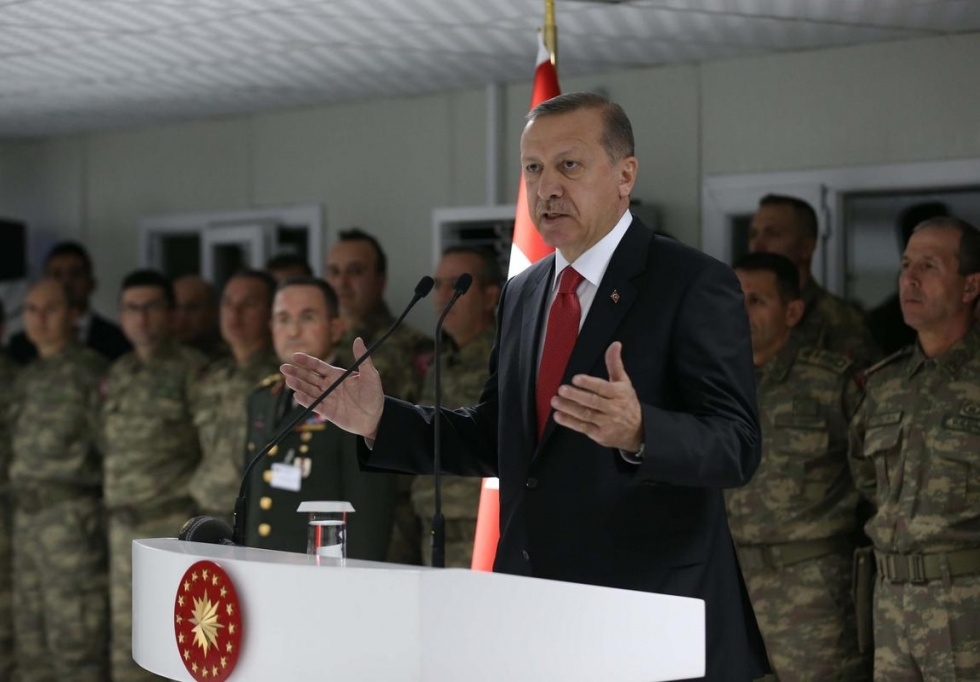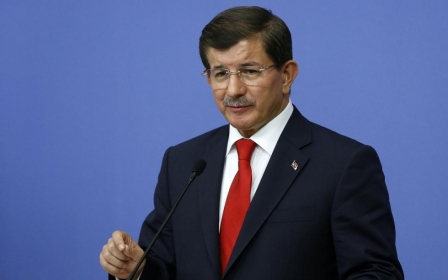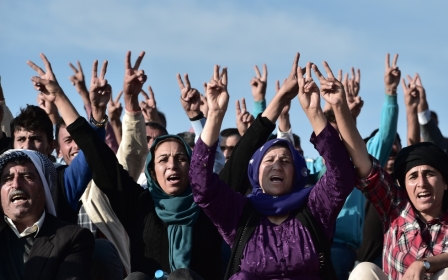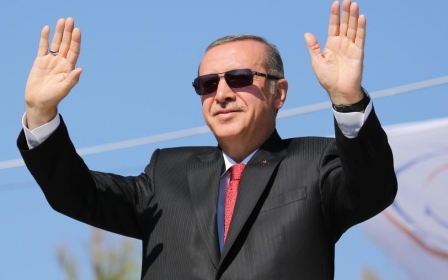Turkey: West's criticism shows 'double standards'

Turkey will not bow to double standards and unfair criticism from the West while taking the same level of security precautions as them, said Turkish President Recep Tayyip Erdogan on Tuesday.
Speaking at the second International Ombudsman Symposium in Ankara, Erdogan defended the introduction of a bill granting more powers to law enforcement agencies in Turkey.
The bill comes after the outlawed Kurdistan Workers' Party, or PKK, -led demonstrations during the Eid al-Adha holiday at the beginning of October resulted in the deaths of 36 people.
Demonstrators took to the streets under the pretext that the Turkish government was allegedly doing nothing to halt the advance of militants of the Islamic State (IS) who were advancing on the Turkish-Syrian border town Kobane.
"We are currently taking the same measures as Europe and the US. I personally know the way the security forces in the West take measures in the face of vandalism," he said.
Vandalism
"Would the West call such vandalism in their own country freedom? But a double standard is very clear when it comes to Turkey."
Scores of vehicles, state buildings, party offices and shops were set on fire and damaged during the violent protests.
"When Turkey takes any measures regarding social media, it immediately turns into an organized smear campaign both domestically and internationally," he said.
"Turkey is being criticized for the lack of press freedom. The jailed journalists in Turkey were convicted in relation to murder, terrorism and other crimes. But no one mentions the 16 journalists Israel killed during Gaza attack [this summer]. No one spoke of those journalists who came under pressure, or sacked [due to their criticism on Israeli policy] during Gaza attacks."
Victims of PKK
Erdogan also remembered three young people killed by pro-PKK supporters during the Kobane protests two weeks ago.
Yasin Boru, 16, Hakan Gokgoz, 26, and Huseyin Dakak, 19, were killed by attackers armed with machetes and guns on the second day of Eid al-Adha. Their bodies were mutilated by the attackers afterwards.
"We don't see any international coverage regarding their deaths. But when it comes to the death of a teenager during Gezi protests [Berkin Elvan], even some transoceanic circles tried to politicize this, referring to the religious sect of that teenager," he criticized.
Fifteen year-old Elvan, died in March, 269 days after receiving a head injury in Istanbul's Okmeydani district in June last year. He was allegedly struck by a gas canister fired by police.
Saying that Turkey takes most appropriate measures to provide security for its people, "which is a sine qua non of freedom and democracy," Erdogan went on: "We will never let Turkey return to 90s, when harsh security measures came to the forefront."
Why just Kobane?
He also mentioned the situation in the Syrian Kurdish city of Kobane, where Syrian Kurdish forces clash with IS militants to keep them taking over Kobane.
"You won't raise your voice when some 300,000 people were killed in Syria, but you will set the country on fire when it comes to Kobane. Why Kobane is that much more important, but not the other cities? We are already accommodating most of the people from Kobane, there are not many people left [in the city]," Erdogan said.
The battle for the control of Kobane has been raging since mid-September when IS entered the town. An estimated 1.5 million Syrian refugees, including some 180,000 from Kobane are being sheltered in camps across Turkey.
Middle East Eye propose une couverture et une analyse indépendantes et incomparables du Moyen-Orient, de l’Afrique du Nord et d’autres régions du monde. Pour en savoir plus sur la reprise de ce contenu et les frais qui s’appliquent, veuillez remplir ce formulaire [en anglais]. Pour en savoir plus sur MEE, cliquez ici [en anglais].




